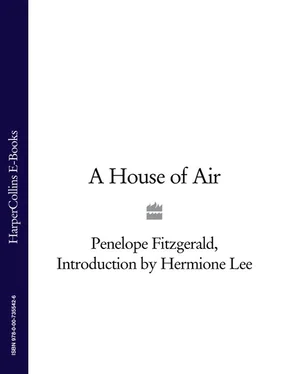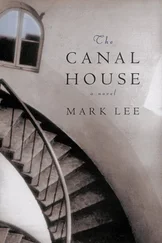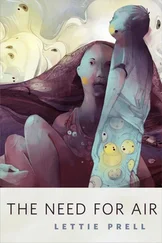She pays great attention to serious craftsmanship, practised skills, and technical mastery. (There is always a job to be done in her novels: running a bookshop or a school, keeping a barge afloat.) The best compliment she can pay to the biographies she often reviews is ‘calm professionalism.’ She is just as interested in non-verbal professions; there is a great deal about art in this book. She tells us about Francis Oliphant’s failed attempts at glass painting. William de Morgan’s luminous tiles, Charles Ashbee’s high-minded devotion to handicrafts (all the same, ‘he was an architect whose houses stood up’), and Edward Lear’s heavenly Mediterranean paintings. She has an eye for illustrations—John Minton’s decorations for Elizabeth David’s first cookery book, ‘a kind of delicious ballet in and out of the text,’ or Ernest Shepard (her step-mother’s father) and his feeling for line (‘You can recognize it in…a study of…a young man cutting long grass…The braces are only just sketched in, but you can see how they take the strain’). She loves small well-made books, like J. L. Carr’s ‘delightful tiny booklets’, The Little Poets (‘I only wish I had a complete set now’). One of her favourite quotations is from the socialist woodworker Romney Green, who held that ‘if you left any man alone with a block of wood and chisel, he will start rounding off the corners.’
Romney Green was a friend of Harold Monro, founder of the Poetry Bookshop, which had a quirky, idealistic, and influential life from the 1910s to the early 1930s. This is Fitzgerald’s golden age: she doesn’t like ‘Georgian’ to be used as a term of abuse. Born in 1916, she remembered hearing Walter de la Mare reading at the Poetry Bookshop, and many of her best-loved writers are connected to that period and that atmosphere: A. E. Housman, Edward Thomas, Sylvia Townsend Warner, Stevie Smith. Again, one of the things she liked best about the Poetry Bookshop was the look of its rhyme sheets, which, ‘in the spirit of William Blake,’ and using some of the best illustrators of the time (including John and Paul Nash, David Jones, and Edward Bawden), were designed for ‘the verse and the picture to make their impression together.’ ‘We tacked them on our walls, above our beds and our baths.’
Harold Monro was a lost cause in the end, a pathetic and gloomy alcoholic, and the Bookshop was carried on gallantly for a while, and then wound up, by his passionate Polish widow, Alida. As in her novels, Fitzgerald is drawn to failures, and some of her most vivid characterizations here, in life as in fiction, are of despairing figures whose struggles and defeats are at once funny and terrible. She is drawn to the sad minor characters in minor English novels. There is the poor faded shabby-genteel Mrs Morgan in Mrs Oliphant’s The Rector (‘She cannot afford to complain. Time has robbed her of the luxury of ingratitude’). There is the ‘uncompromisingly plain Anne Yeo’ in Ada Leverson’s Love’s Shadow , ‘hideously dressed in a mackintosh and golf-cap and “well aware that there were not many people in London at three o’clock on a sunny afternoon who would care to be found dead with her.”’ There is the unmarried Monica in E. M. Delafield’s Thank Heaven Fasting , a prisoner of early-twentieth-century middle-class English domestic servitude: ‘Heavy meals come up from the basement kitchen, clothes are worn which can’t be taken off without the help of a servant, fires blaze, bells are rung, hairdressers arrive by appointment—every morning and evening bring the spoils of a comfortable unearned income. It is the only home Monica has ever known, and we have to see it turn first into a refuge for the unwanted, and then into a prison.’ You might not call Penelope Fitzgerald, at first glance, a feminist writer, but she is one.
So conscious of how cruel life can be to its victims, she is generally kind herself. However, she should not be mistaken for a pushover, and can be lethal about poor work. One biographer, busy seeing off his predecessor as ‘conventional,’ is dealt with thus: ‘This leads you to expect a bold treatment of some debatable points, but that would be a mistake.’ Another is described as writing with ‘flat-footed perseverance.’ She is often at her most ironical when writing about biography, a form that fascinates and exasperates her (and that, in her lives of Charlotte Mew and the Knox brothers, she made entirely her own). She always insists on the need for the fullest possible historical context, and she knows all about the problems of the genre: ‘The years of success are a biographer’s nightmare.’ ‘The “middle stretch” is hard for biographers.’ ‘Perhaps the worst case of all for a biographer, nothing definable happened at all.’
In any life-story, she is alert to cruelty, tyranny, or unfairness, and she has no time for horrible behaviour—severely recalling Larkin, on an Arts Council Literature Panel, saying (in response to a query about the funding of ‘ethnic arts centres’) that ‘anyone lucky enough to be allowed to settle here had a duty to forget their own culture and try to understand ours,’ or summing up the character Evelyn Waugh assumed for visitors and admirers as ‘the tiny Master threateningly aloof in his study, emerging with the message: I am bored, you are frightened.’ Like her father, Evoe Knox, when he was editor of Punch , she always speaks out against tyrants. And she has an acute feeling for—and memory of—the vulnerability of children. She responds to writers (like Walter de la Mare, or Blake, or Olive Schreiner) who enter into the child’s dreams, or feelings of exile or homesickness; she is very alert to ‘the bewilderment of children growing up without love.’ At her memorial service, appropriately, Humperdinck’s ravishing and consolatory lullaby for the two lost children, Hansel and Gretel, was sung.
Hansel and Gretel (whose lullaby is also heard in The Bookshop ) believe in angels; Penelope Fitzgerald probably did, too. She certainly believes in minor phenomena like ghosts and poltergeists, and she does a great deal of thinking about religion, as is only natural for the granddaughter of bishops and the niece of a Socialist priest, a notable Roman Catholic convert and translator of the Bible, and a fiercely sceptical cryptographer. Her novels argue, quietly, over belief, and the relation between the soul and the body. ‘Because I don’t believe in this…that doesn’t mean it’s not true,’ is Frank’s position in The Beginning of Spring . The Russian priest he is listening to says to his congregation: ‘You are not only called upon to work together, but to love each other and pity each other.’ Fitzgerald has described herself as ‘deeply pessimistic,’ but she seems to believe in that sort of ideal. Writing here about Middlemarch and its hope that ‘the growing good of the world’ may depend on the diffusive effect of obscure acts of courage, heroism, and compassion, Fitzgerald says, not entirely confidently: ‘We must believe this, if we can.’ ‘Pity’ is one of the emotions—or qualities—she most values, especially in comedy. She certainly has a lively interest in little-read late-Victorian theological fiction, and a sharp eye for religious patches seeping through into secular-seeming texts, like Jane Austen’s Evangelicism leading Emma to weep over ‘a sin of thought,’ or Virginia Woolf inheriting from her father ‘a Victorian nonconformist conscience painfully detached from its God.’
But she is extremely reticent about her own beliefs. The people she admires are those who have a habit of ‘not making too much of things.’ She takes aesthetic pleasure in control and restraint: writing about Angus Wilson’s homosexuality, she says, with a rare touch of primness: ‘Getting rid of the restraints didn’t improve him as a writer—when does it ever?’ What autobiography we get here comes in glimpses—she says of her father that ‘everything that was of real importance to him he said as an aside.’ At one point in her life she started to write a biography of her friend L. P. Hartley, but stopped when she realized that it would give pain to his surviving relative. She thinks of him as resisting investigation; one of his characters, when unconcious, is subjected to ‘a complete examination’ by a famous specialist, ‘which in all his waking moments he had so passionately withstood.’ One of the very few personal details she gives us in these essays—that she once had a miscarriage—is offered only to illustrate the profound reserve of Ernest Shepard, who came to see her and handed her a bunch of flowers ‘without a word.’ She has a lot of time for silence: the silence that falls after a life-story like Coleridge’s, the world of Jewett’s stories ‘where silence is understood,’ the reserve which kept James Barrie from telling us what Mrs Oliphant said on her death-bed. This collection ends with Virginia Woolf’s posthumously published description, in her last novel, of a woman writer—a comic failure, of the kind Fitzgerald enjoyed writing about, too—leaving her audience behind (‘she took her voyage away from the shore’) and taking with her some mysterious unspoken words.
Читать дальше












